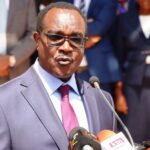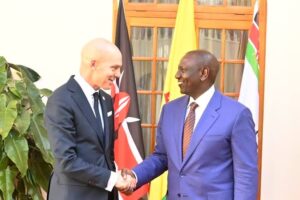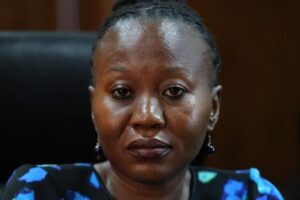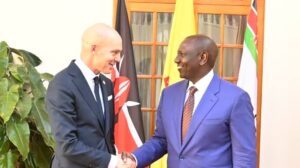Nakuru County Senator Tabitha Karanja has taken the opportunity to clarify her remarks made during the recent impeachment motion against former Deputy President Rigathi Gachagua.
Her comments, which occurred on the Senate floor, drew criticism and were interpreted by some as a call to revert to the dictatorial regime of former President Daniel Moi, a comparison that Karanja vehemently denies.
She expressed her concern that her statements had been intentionally misinterpreted by detractors, aiming to tarnish her intentions and misrepresent her views.
In her clarification, Karanja asserted that her comments were taken out of context.
She emphasized that she was not advocating for a return to an oppressive regime but was instead suggesting a revision of the process for selecting running mates for the Deputy President and governor positions.
Her proposal aims to grant the appointing authority either the President or the governor the power to hire and fire their deputies without public or parliamentary involvement.
This, she argues, would allow for a more streamlined and efficient governance process.
Karanja stated, “I wish to hereby categorically state that I did not at any one time mean or refer to us going back to such things but actually, I meant that choosing a running mate for the Deputy President/governor position be revised so as to allow the appointing authority, who is the President/governor him/herself, power and authority to hire/fire their deputies accordingly.”
Her assertion show her belief that the current process is overly complicated and prone to political maneuvering, which can lead to instability.
The senator elaborated on the challenges of the existing system, describing it as a “rigorous, tedious, tiresome, and obviously very expensive exercise meant to only resolve a very singular disagreement by individual political leaders.”
Karanja’s remarks reflect the frustrations that many citizens and political leaders have regarding the current political landscape in Kenya, where tensions have escalated and led to a near standstill in governance.
By advocating for a change in the selection process, she hopes to alleviate some of these tensions and promote a more effective government structure.
In her address, Karanja also took a moment to reflect on the historical context of political appointments in Kenya, particularly during the Moi era.
She recalled that the process of appointing and replacing the Vice President was much more straightforward back then.
“Those who can remember, the hiring and later firing and then again re-hiring of the late Vice President Prof. George Saitoti was not anything compared to what we have had recently in our country,” she noted.
This historical reference was meant to illustrate her point about the need for reform in the political appointment process, highlighting the significant changes that have occurred over the years.
Karanja’s remarks and subsequent clarification reveal a deep concern for the political stability of Kenya and the mechanisms that govern leadership positions.
Her proposed changes aim to address the inefficiencies and complications that currently exist in the appointment processes, which she believes detract from effective governance.
By giving the appointing authority the ability to make decisions regarding their deputies without undue influence from external forces, Karanja argues that Kenya can move towards a more efficient and stable political environment.
Senator Karanja’s statements highlight the ongoing challenges within the Kenyan political system, as well as her commitment to fostering a more effective governance framework.
While her remarks have been mischaracterized, she remains steadfast in her belief that reform is necessary to improve the political ground in Kenya.
Karanja’s call for change underscores the importance of open dialogue and clarity in addressing the issues facing the country.





















Add Comment